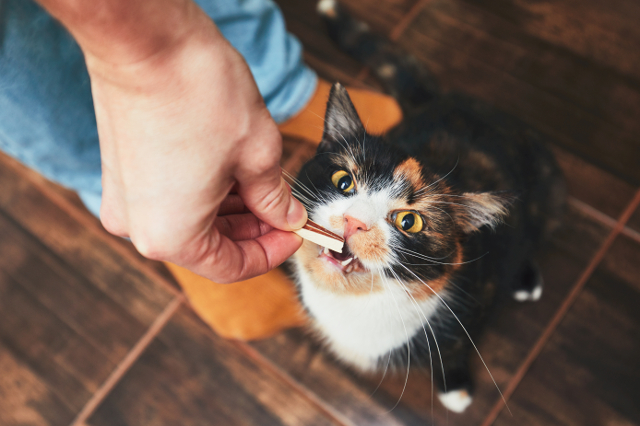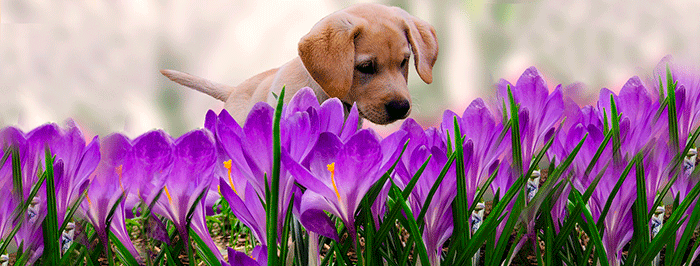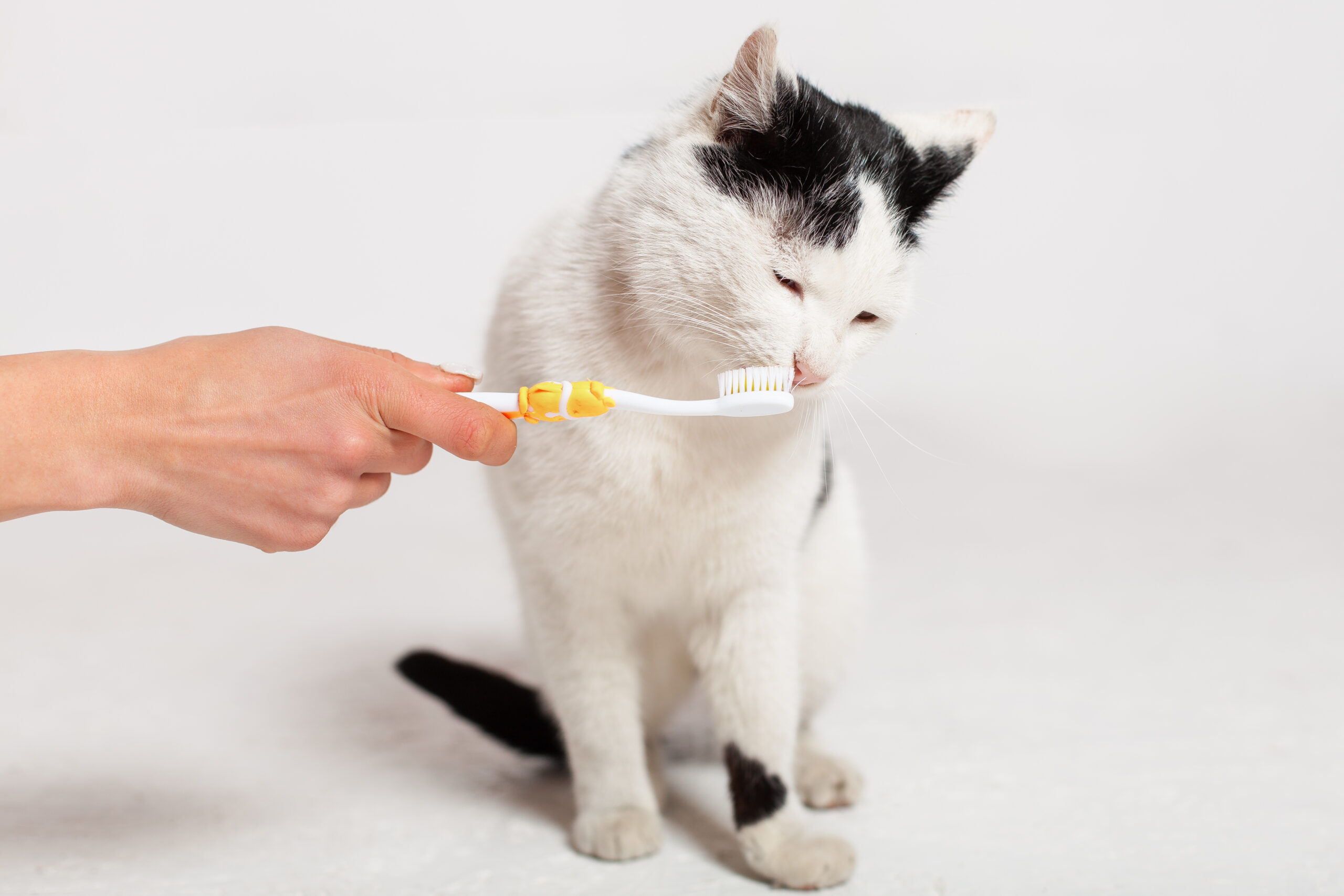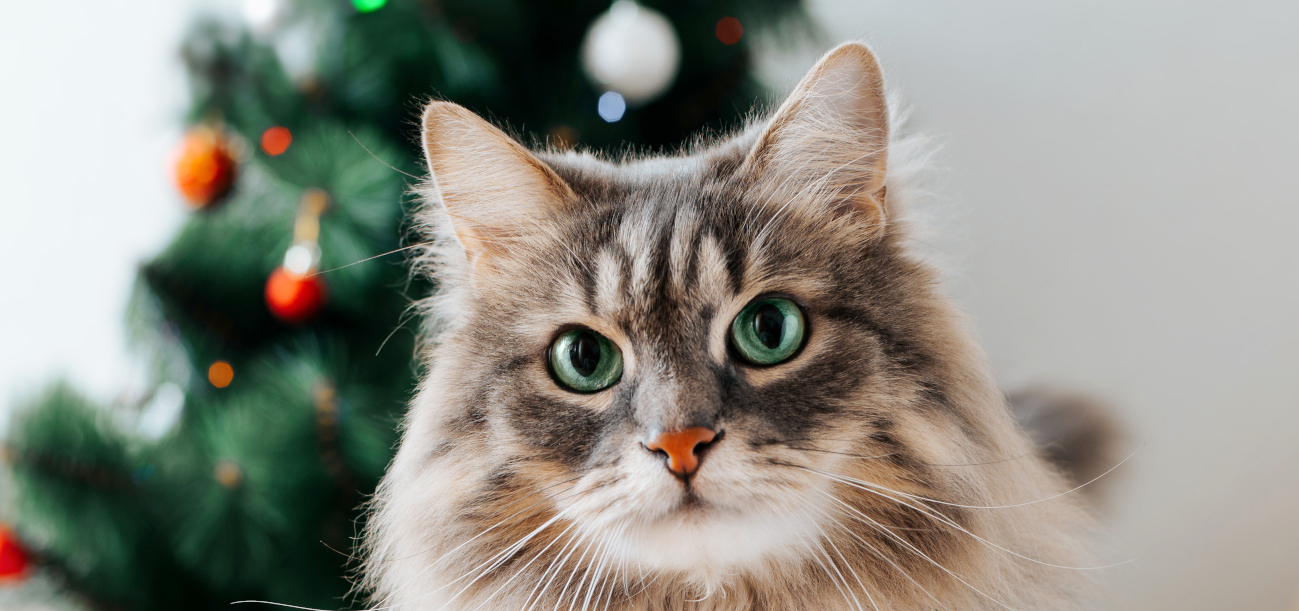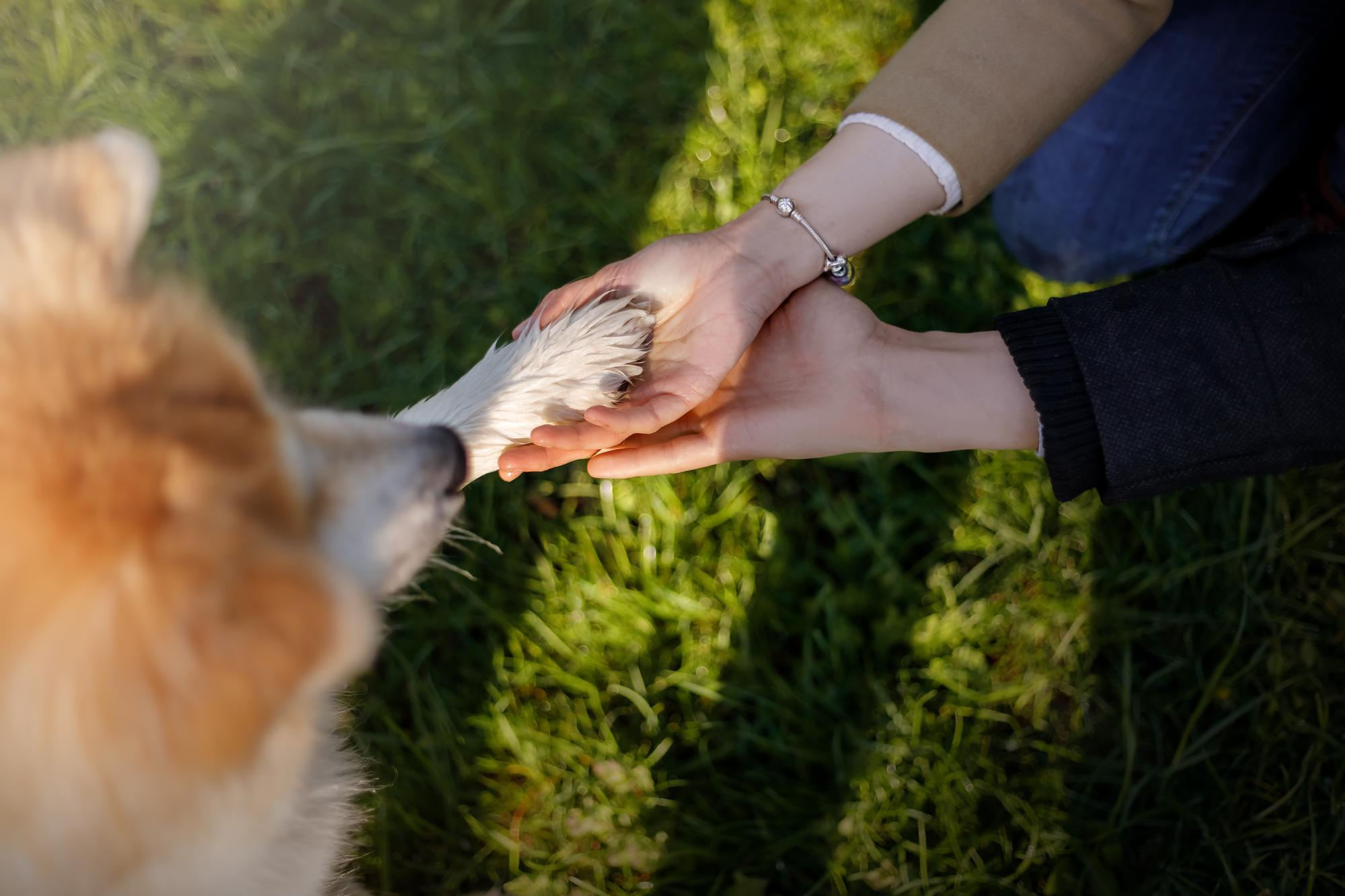Just like with humans, healthy teeth are vital for your cat. Not only does proper dental health improve bad breath and other cosmetic issues, but it also can help protect them from more serious health issues.
What kinds of dental issues can cats get?
There are a number of teeth and mouth-related problems that your cat might encounter. The two most common ones are:
- Gingivitis – You might recognize this term from your last visit to your own dentist. Gingivitis is inflammation of the gums caused by plaque, a sticky substance which accumulates in the mouth and harbours bacteria. Eventually, plaque will harden into calculus or tartar, which is a rough, solid surface for even more bacteria to latch onto.
- Periodontitis – Periodontitis is usually caused by untreated cases of gingivitis. Unlike gingivitis, which is simply an immune response to excess and harmful bacteria, periodontitis can be very serious, and not reversible. Periodontitis affects the tissues connecting the teeth and gums to the bone, gradually destroying them and potentially leading to tooth loss.
Fortunately, many dental health issues can be treated or outright prevented as long as they’re noticed in time. Cats are known for hiding their pain and discomfort, an instinct that was carried over from their wild predator ancestors. And even though your cat is more than safe in your care, they may still feel the need to pretend they’re not in pain.
This is why it’s so important to be proactive with checking your cat’s mouth and teeth, rather than waiting for them to let you know about a problem. If you wait too long, it may wind up being more time-consuming, costly, and painful to fix the problem. So here are a few signs that your cat needs dental care right away.
Decreased interest in eating (particularly with hard and dry foods)
If you notice just one sign of dental distress in your cat, it will likely be this one. Cats who are experiencing dental pain, loose teeth, or oral inflammation will usually be less interested in eating than they normally are. This is especially true for cats on dry food diets since the hard, crunchy texture can be difficult to manage with sore teeth. If your cat normally goes wild for their favourite crunchy treat, but they don’t seem as interested, it could be a sign that they’re in pain and need to be seen by your veterinarian.
Whether you feed your cat on a schedule or let them graze at will, pay attention to how much they’re eating and how long it takes them compared to their usual habits. You should also be on the lookout for weight loss, which is common in cats who can’t comfortably eat.
Different behaviour while eating
Even if your cat is eating, they can still show signs of pain and discomfort caused by dental issues. Pay attention to any little differences in their behaviour while eating, such as eating more slowly than usual, turning their head to chew with just one side of the mouth, or allowing food to drop out of their mouth as they eat. These can all be signs that there’s a problem and should be addressed quickly with your veterinarian.
Uncharacteristic drooling
Some dental issues may prevent your cat from fully closing their mouth, leading them to drool. Bear in mind that some cats will drool from time to time for other reasons, so this is not always a symptom of dental disease. However, if your cat has only recently started drooling and/or is doing it excessively, it’s best to have them seen by your veterinarian to be safe.
Pawing at the face or mouth
Cats in pain and discomfort typically prefer not to show it, but sometimes they can’t help themselves. That’s why you should always pay special attention if you notice your cat pawing at their own face or mouth—they might be trying to communicate that something is wrong.
Dislike for having the face or mouth touched
If your cat normally likes having their face and head pet, but they’re recently recoiling from being touched, it could actually be a sign of a dental health problem. Of course, your cat may just not want to be pet that day, but it can still be a useful warning sign, especially in conjunction with others on this list.
Halitosis (bad breath)
It’s normal for your cat to not have the greatest breath. After all, their diet is likely made up of mostly meat and fish. However, if you notice that your cat has especially bad breath, it could be a sign that something is wrong—such as an infection or a tooth that is breaking down within the mouth.
Visible signs of dental disease
Finally, there are a few clear-as-day symptoms of dental disease that you should be on the lookout for. Unfortunately, being able to notice these symptoms often means the dental disease has progressed, so it’s best to catch issues before they get to this point. Nevertheless, be on the lookout for things like broken, discoloured, or loose teeth, as well as swelling of their face and mouth area. If you do notice these issues, get your cat to your veterinarian as soon as possible.
What to do if you see these signs of dental disease in your cat
If you have noticed something wrong with your cat’s dental health, it’s time to get them to visit your veterinarian. They will be able to help in diagnosing and treating dental diseases in your cat. Usually, this is done through an in-depth examination, beginning with a visual inspection, and often turning to x-rays and other tools to get a more accurate look.
When your vet has identified the problem, they’ll then move on to treatment. This can vary greatly depending on the issue in question. Sometimes treatment is as simple as a dental cleaning or a round of antibiotics. But sometimes more intensive procedures, such as oral surgery, are necessary to give your beloved cat some much-needed relief.
No matter the situation, you and your cat will be supported when it comes to their dental health and getting them feeling 100% again.
Creative Commons Attribution: Permission is granted to repost this article in its entirety with credit to Hastings Veterinary Hospital and a clickable link back to this page.

